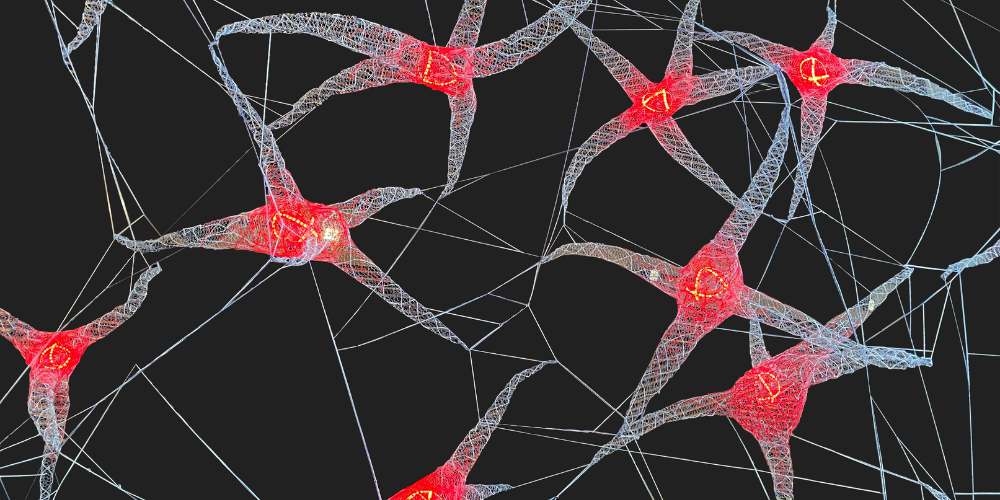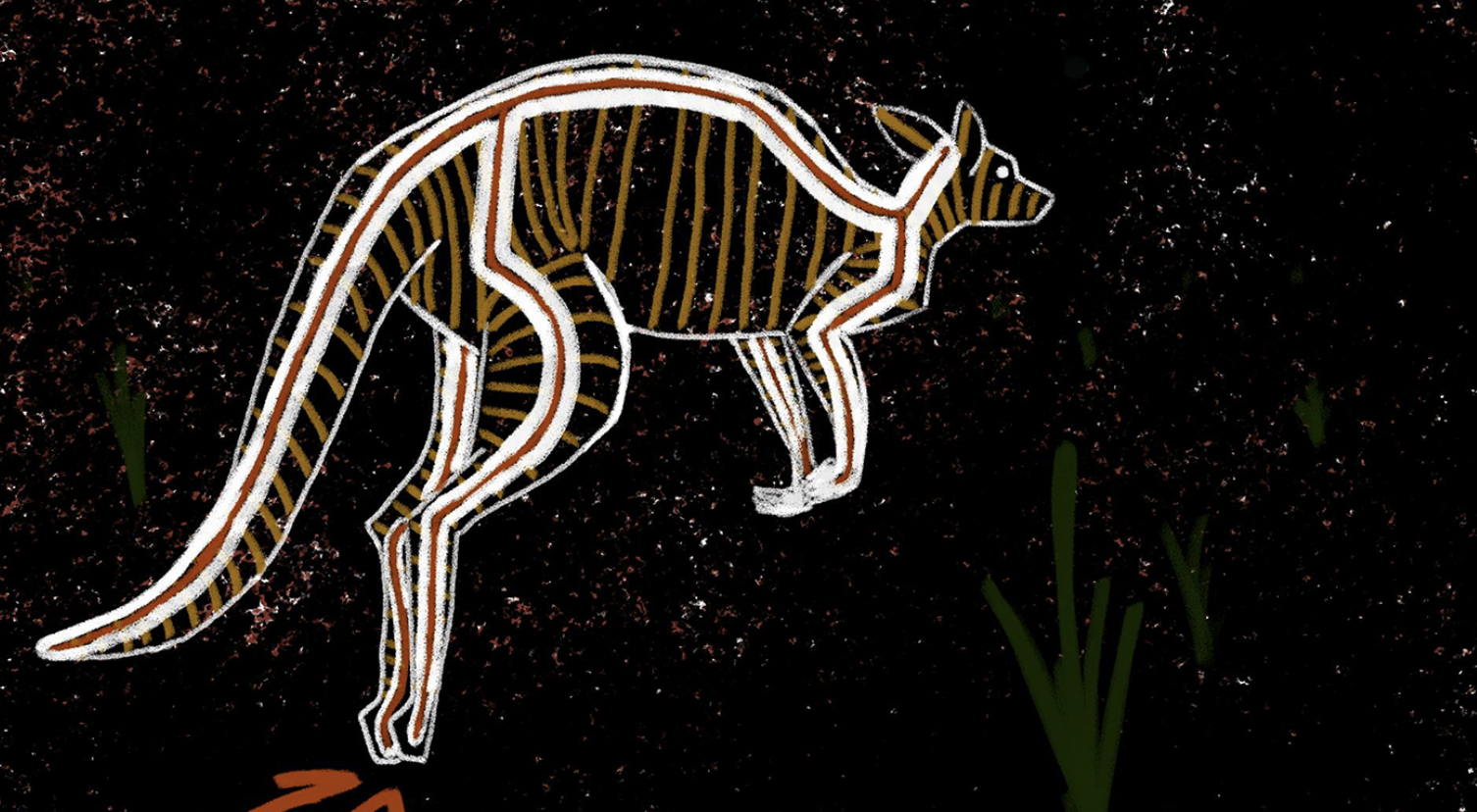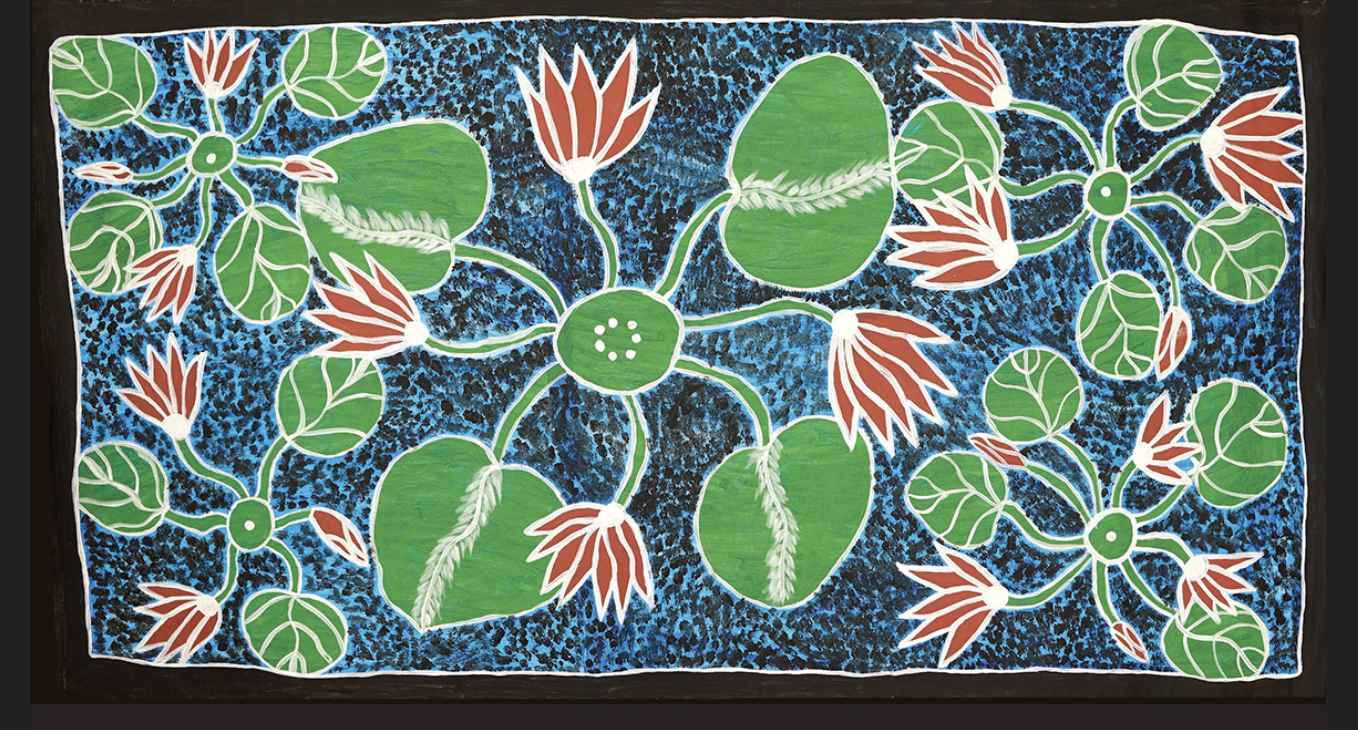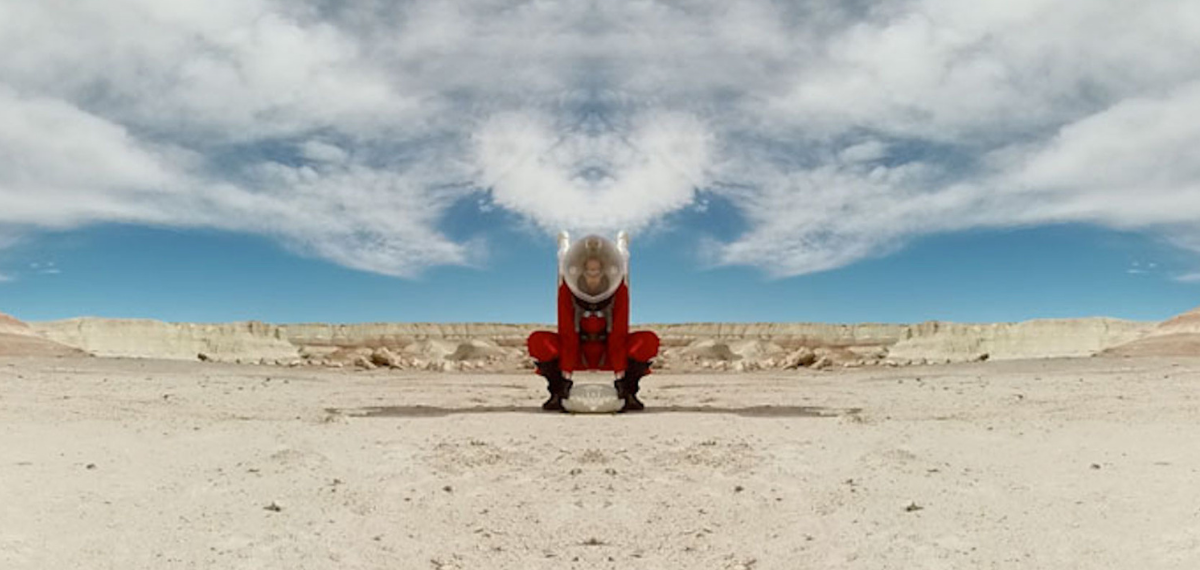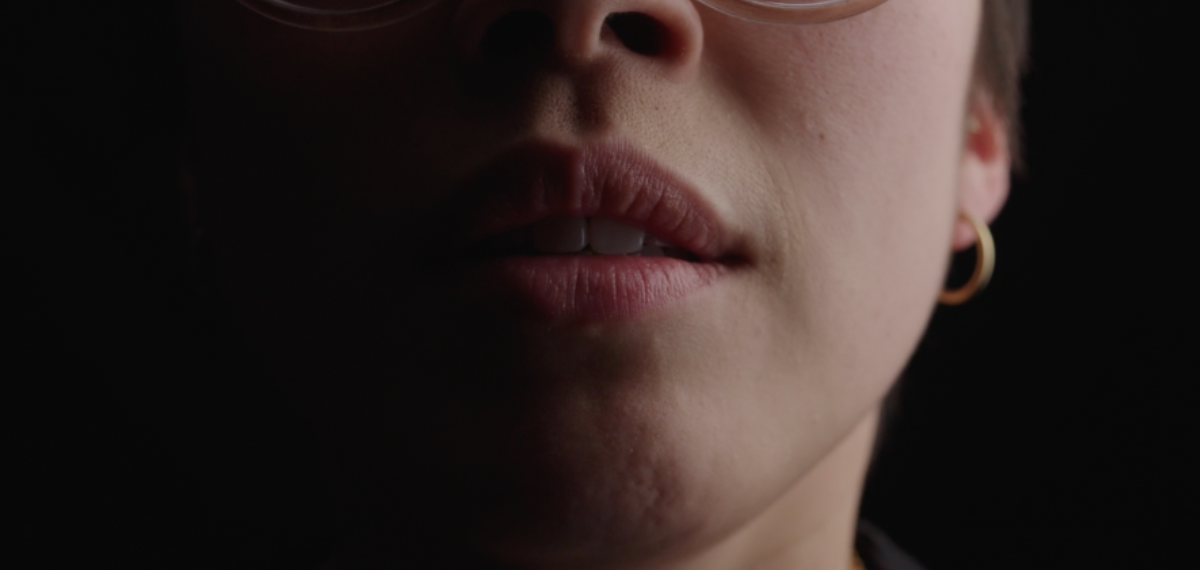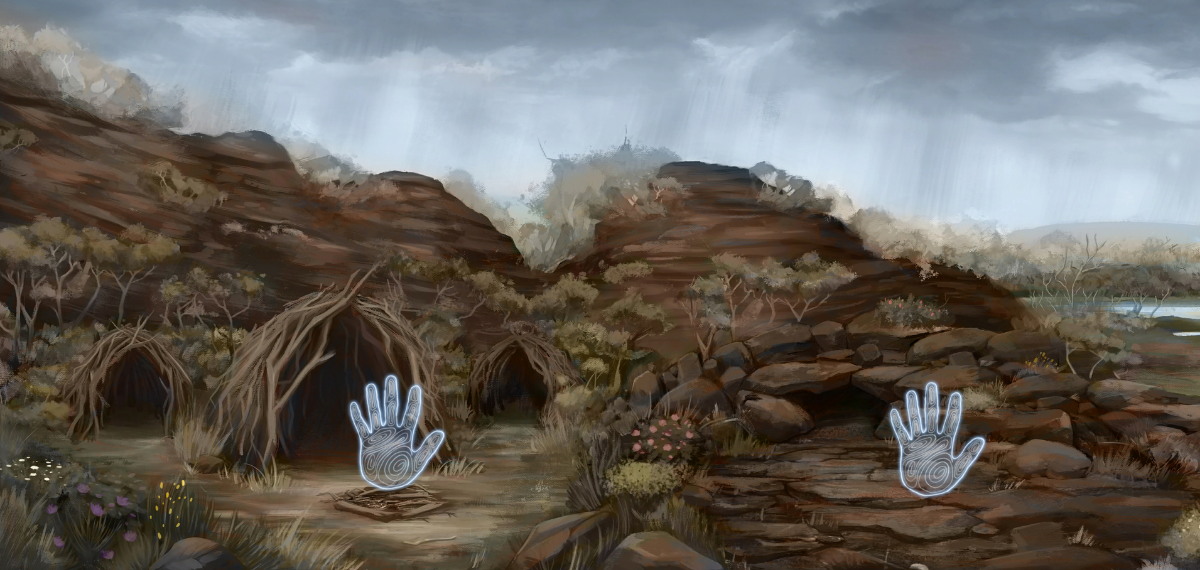Do you want to understand what people think?
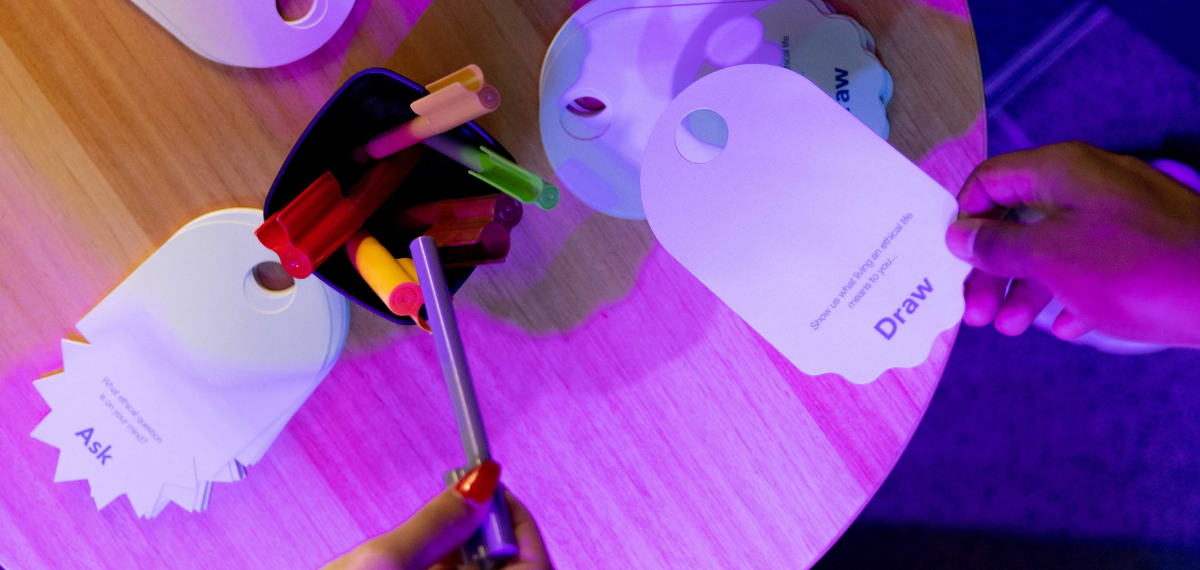
Exhibit Details
Open JanNov 2023
- In Brief
- Want More?
- Accessible Resources
- Photos of exhibit
This exhibit was part of the exhibition FLEX which ran from 17 January – 24 November 2023.
How do we make decisions about what we consider right and wrong?
These ethical boundaries may be a way to protect the people we love, but also could inspire us to trust and act with fairness and care for others.
Here you sit beneath Canopy, a data sculpture shaped by your answers to questions about the future.
In this exhibit, spend some time exploring topics like the future of bodies, how we might exist in space, and technological development. Things change fast. How much time do you spend considering how you can live an ethical life today? And what does that really mean?
Alongside this, you are presented with another lens to navigate ethical questions through a slow mediation. This meditation from the NPY Women’s Council encourages you to stop and listen and contemplate. Leaving your thoughts aside, pay attention to your breath and think only of this present moment.
What are ethics anyway?
Every group of people around the world have values, beliefs and ways of doing things. These work together to help people to have a “good life,” both personally and in their relationships with the community.
What counts as ethical can differ between people and communities.
How do we decide? Ethical reasoning can help us, where we consider what is:
- true, and based on evidence
- relevant to the problem
- fair – that is, takes into consideration the consequences to others.
But who do we mean by others? This could be people that you know, or people in other countries. It could also be other sentient creatures, or the environment. What about others who don’t exist yet but will in the future?
What is fair?
Whether something is fair, it is judged against ethical behaviour like kindness, respect, integrity and empathy. It also needs to be judged against concepts of unethical behaviour, like cheating, cruelty or dishonesty.
Ethics are an important thing to consider when we decide as a society.
This includes:
- How science is done (for example, needing informed consent)
- What science is done (for example, making laws around human cloning)
- How science is used (for example, creating robot soldiers).
Ethical questioning has roots in ancient Greek philosophy. Socrates established the method of dialogue to promote thought and reflection on ethical actions. However, this method of ethical questioning is a Western tradition, with First Nations communities around the world often employing other practises as part of ethical reasoning such as storytelling or deep listening.
For Aboriginal people, this is known as dadirri. Miriam Rose, a Ngan’gityemerri activist, artist, and educator, says that dadirri is a way of life.
“It renews us and brings us peace. It makes us feel whole again… In our Aboriginal way, we learnt to listen from our earliest days. We could not live good and useful lives unless we listened. This was the normal way for us to learn – not by asking questions. We learnt by watching and listening, waiting and then acting. Our people have passed on this way of listening for over 40,000 years…” [1]
Transcript for Canopy here.
Transcript for Pitjantjatjara English water meditation: Think Only of this present moment here.
Audio description:

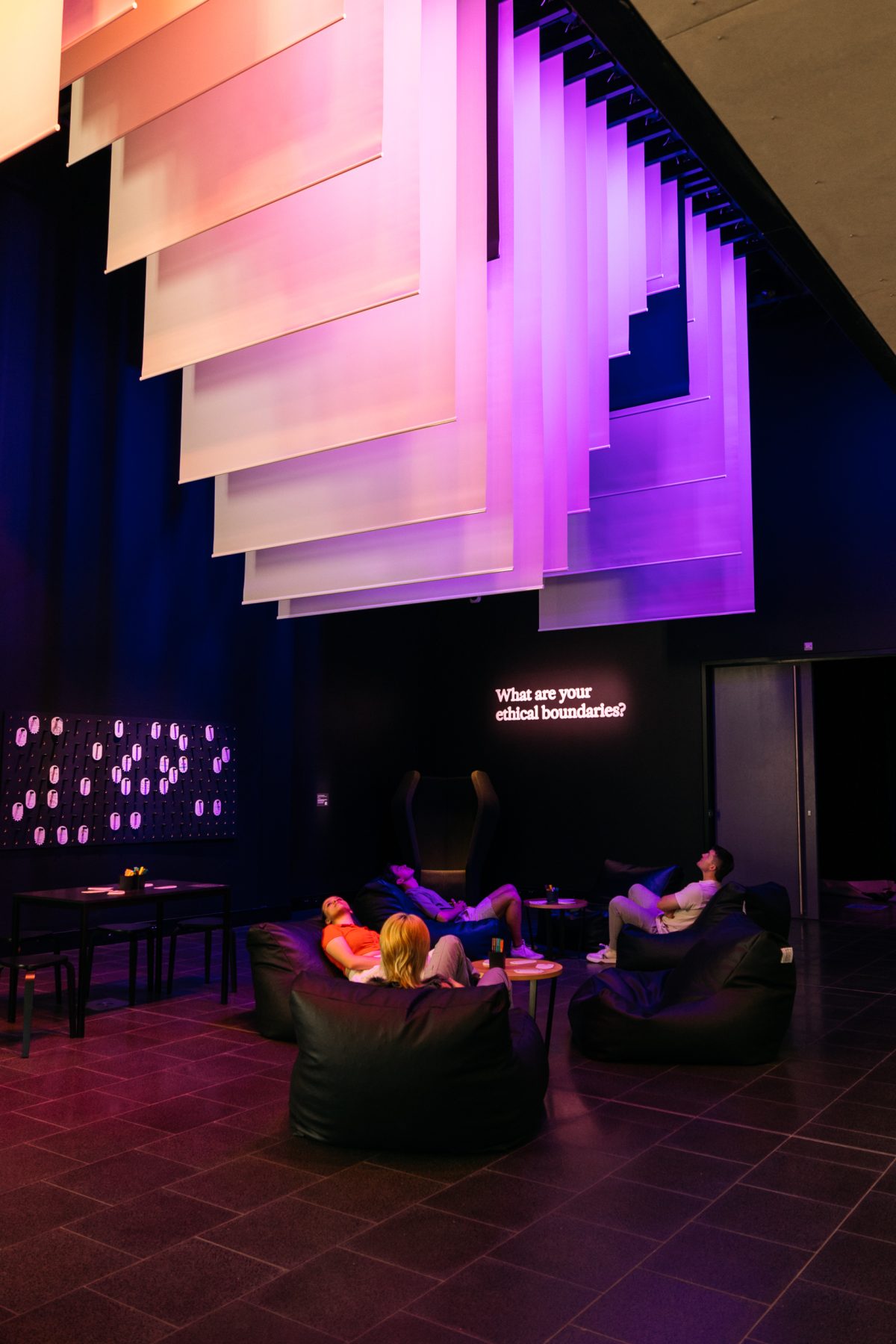
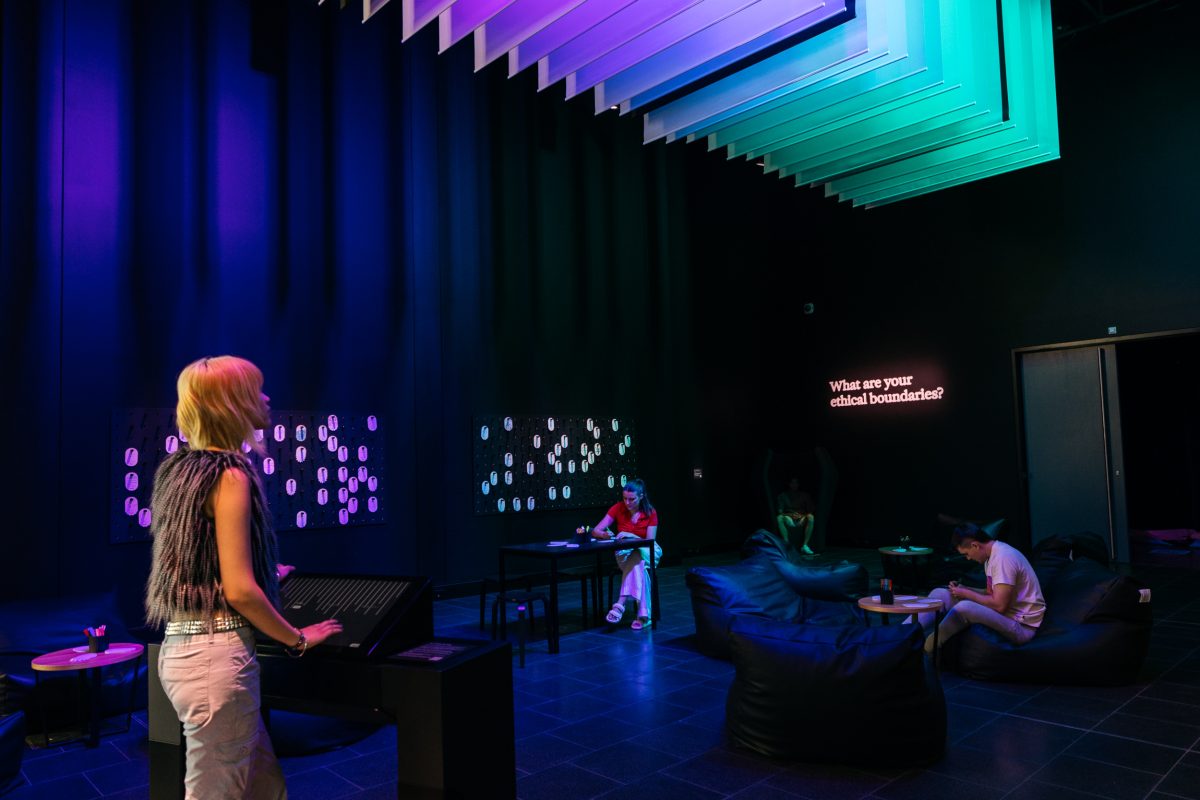
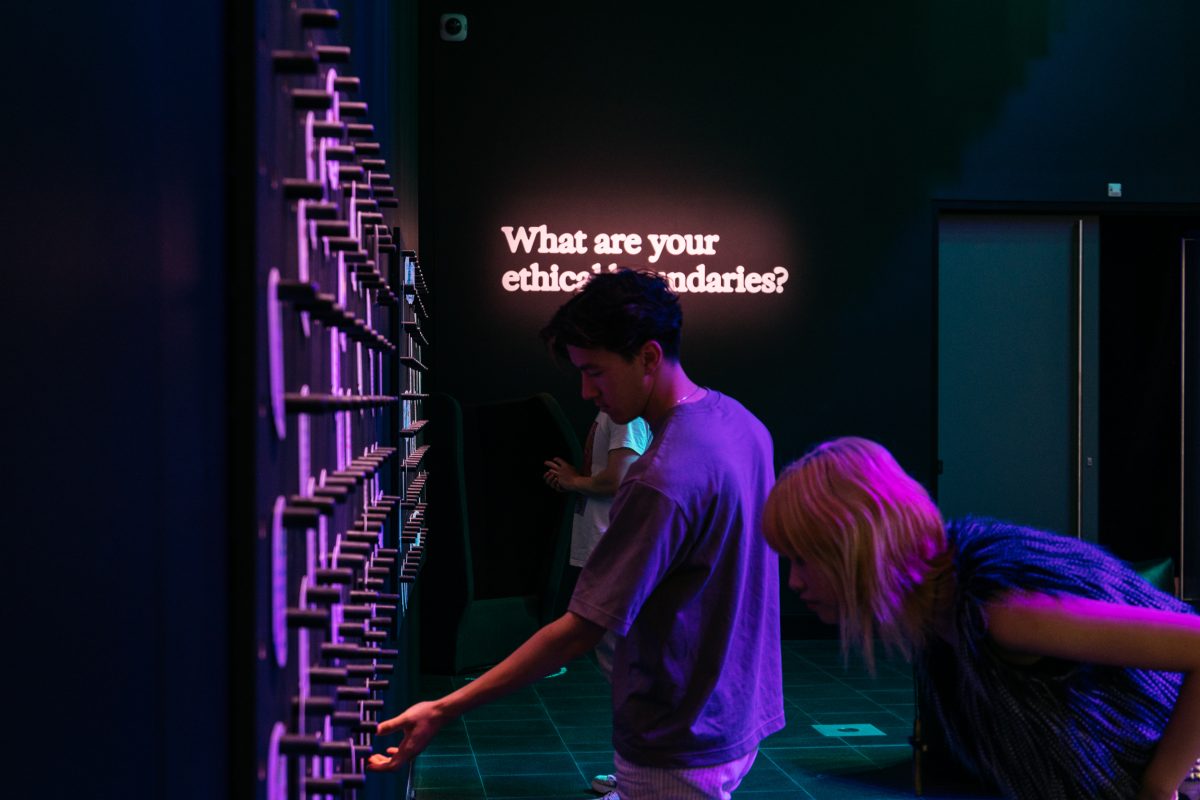
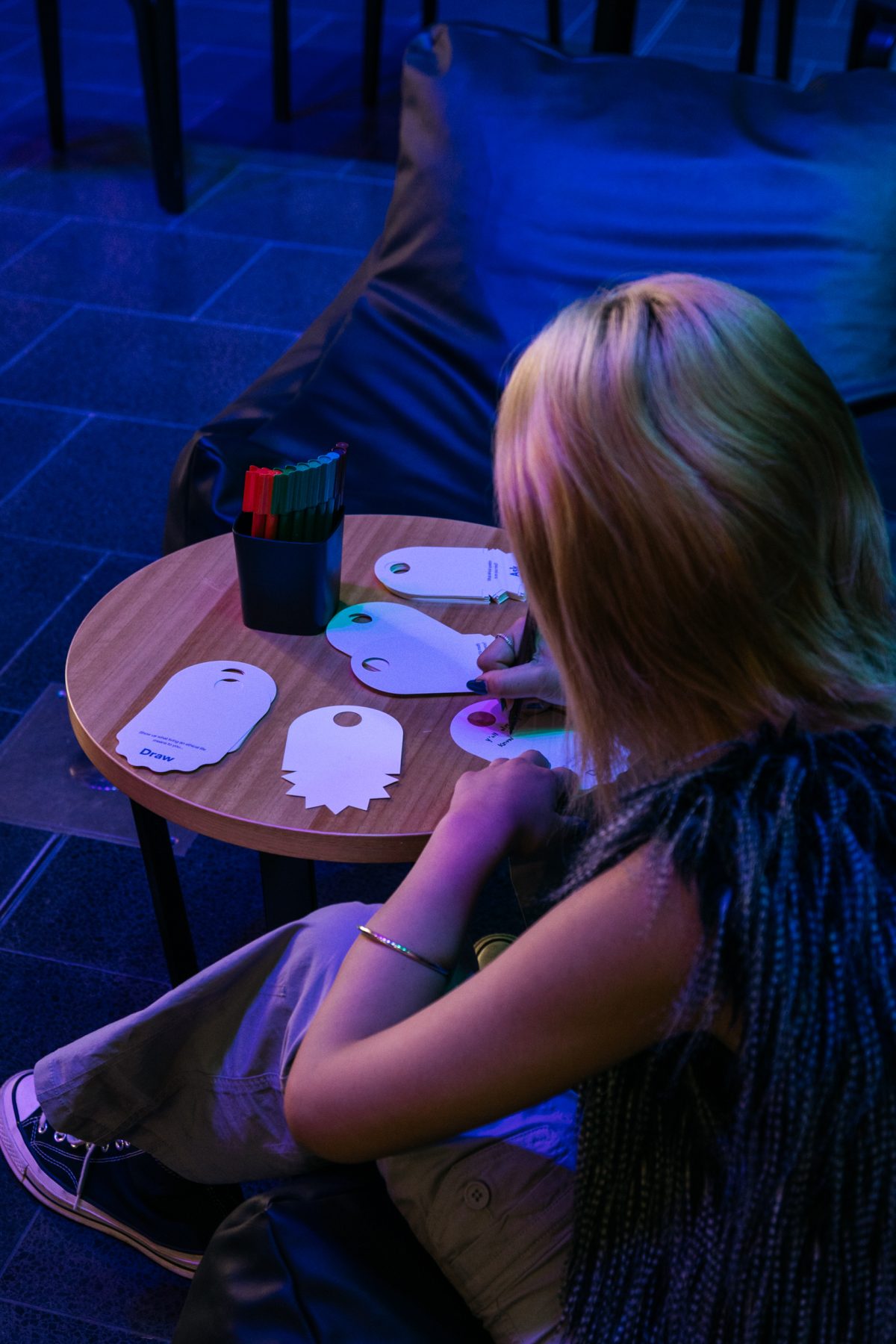

Credits
- Junior Major Artist
- Anne Souvertjis Research
- Belinda Gehlert Composer, Chamber Music Adelaide
- Smiling Mind and NPY Women’s Council Meditation
- Nyunmiti Burton Meditation
- Ethos Community of Practice UniSA Contributor

